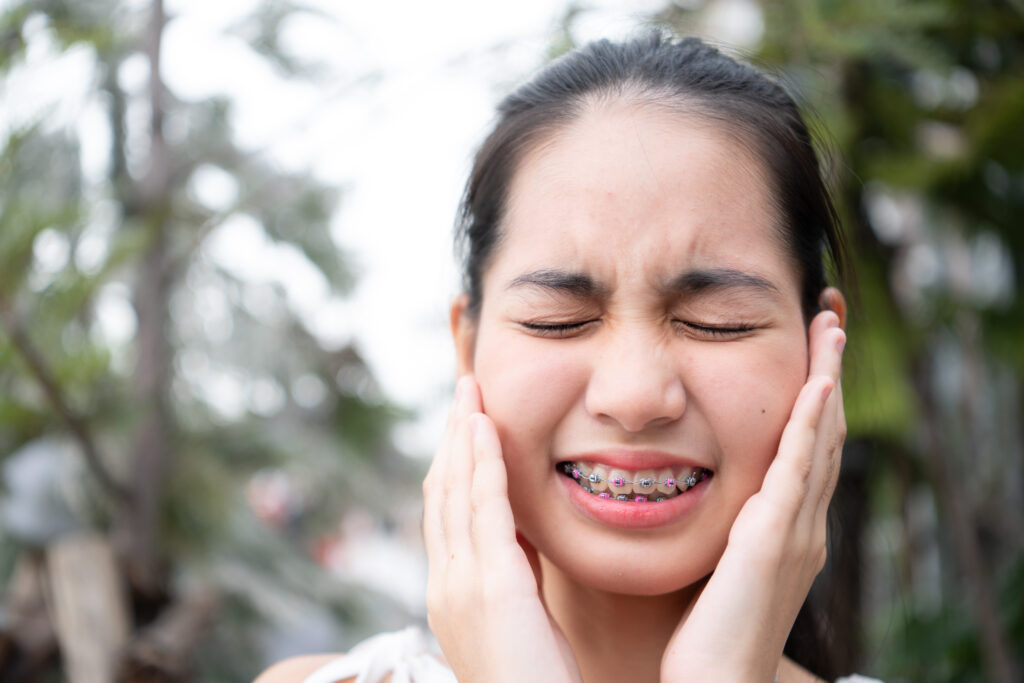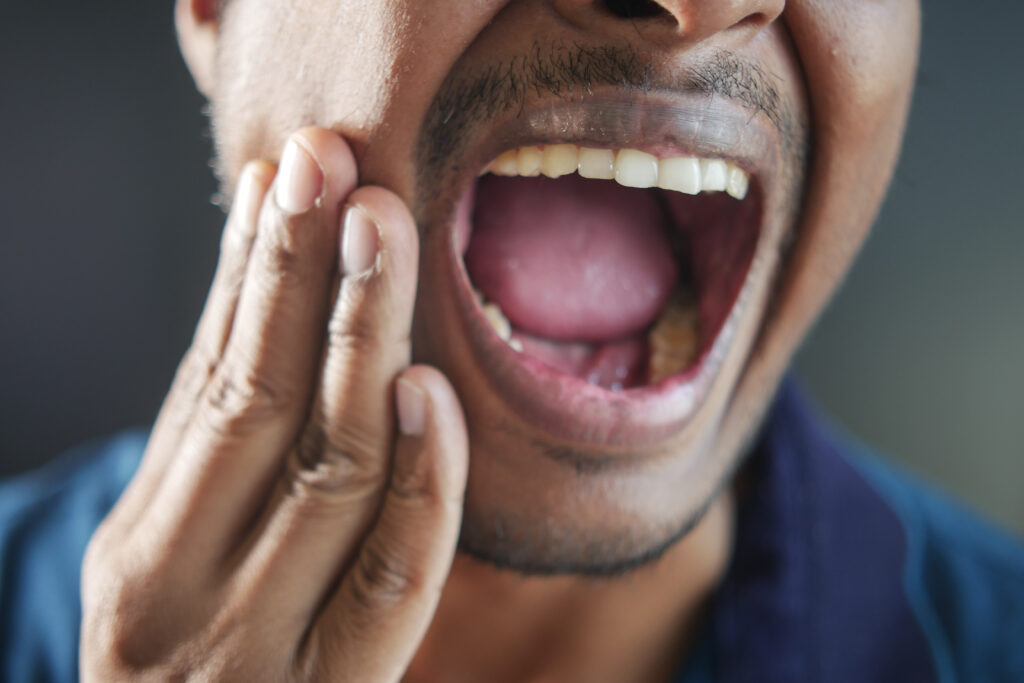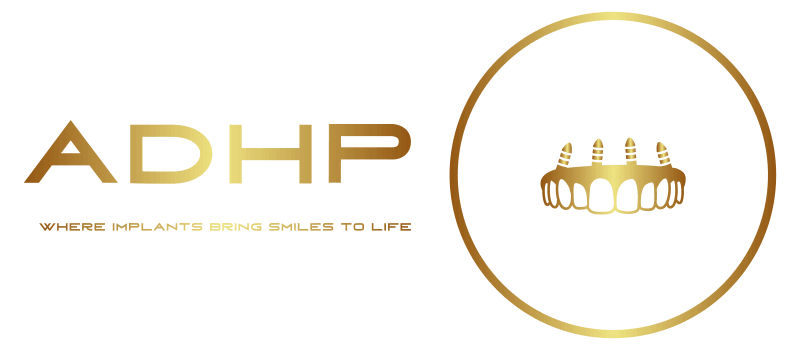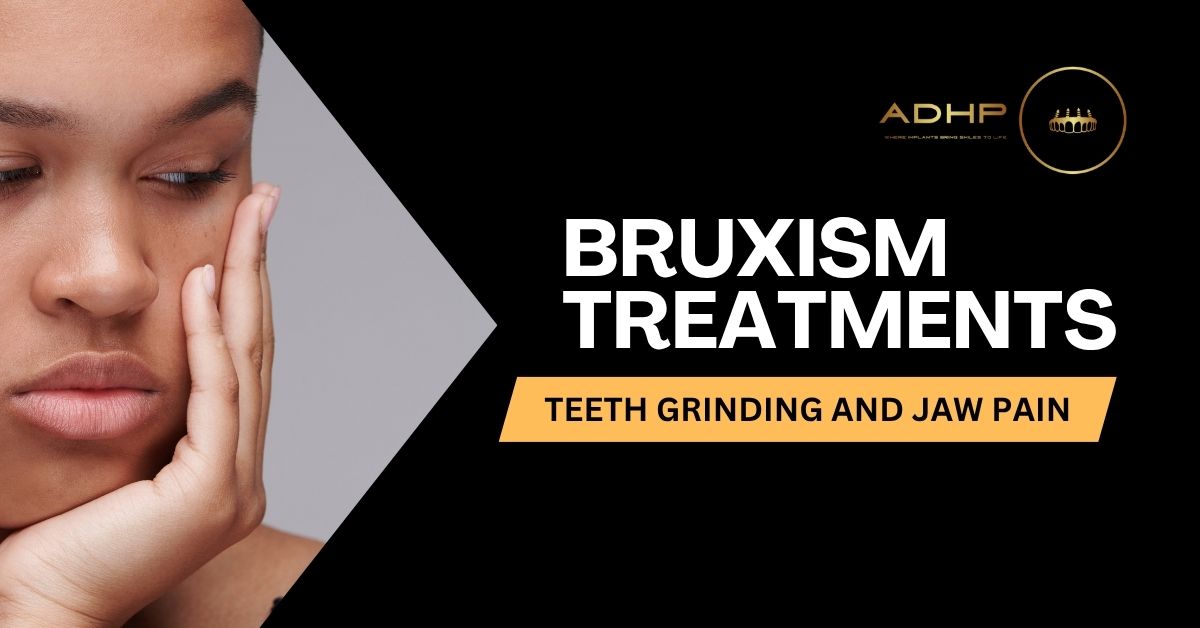Main Takeways:
-
Bruxism Basics: Bruxism is involuntary teeth grinding or clenching, often linked to stress, sleep disorders, or bite misalignment, and can cause tooth damage, jaw pain, and headaches.
-
Common Symptoms: Look out for sore jaw muscles, worn or chipped teeth, tooth sensitivity, headaches, and sleep disturbances.
-
Professional Treatments: Effective options include custom night guards, dental corrections, Botox injections, physical therapy, and treatment for underlying sleep issues.
-
At-Home Solutions: Stress management, jaw exercises, warm compresses, avoiding stimulants, and improving sleep hygiene can help relieve symptoms.
-
Children & Seniors: Bruxism affects all ages—kids may outgrow it, while seniors may need bite or denture adjustments due to age-related changes.
-
Risks of Ignoring It: Untreated bruxism can lead to TMJ disorders, severe tooth wear, chronic pain, and reduced sleep quality.
-
Why Choose ADHP – Torrance: Their expert team provides personalized, comprehensive bruxism treatment to relieve pain, restore function, and protect your long-term oral health.
Do you wake up with sore jaw muscles, headaches, or worn-down teeth? You might be one of the millions of people affected by bruxism—a condition characterized by the involuntary grinding or clenching of teeth. While bruxism can affect people of all ages, it often goes undiagnosed until noticeable damage occurs. The good news? A wide range of effective bruxism treatments are available to help you find relief and protect your oral health.
In this comprehensive guide, we’ll explore everything from the causes and symptoms of bruxism to the most effective professional and at-home treatment options. Whether your condition is mild or severe, there is a solution that can help you reclaim comfort, sleep better, and preserve your smile.
What Is Bruxism?
Bruxism is the medical term for the habitual grinding, gnashing, or clenching of teeth, typically occurring during sleep (sleep bruxism) or while awake (awake bruxism). Although occasional teeth grinding might not cause harm, chronic bruxism can lead to significant complications, including:
- Jaw pain and tension
- Tooth wear and fractures
- Headaches and migraines
- TMJ disorders
- Sleep disturbances
Knowing what triggers bruxism is the first step toward identifying the best bruxism treatments for your specific needs.
Causes of Bruxism: What’s Behind the Grinding?
Bruxism can stem from a combination of physical, psychological, and genetic factors. Common causes include:
1. Stress and Anxiety
One of the most frequent triggers, stress often manifests physically through jaw clenching or teeth grinding, particularly during sleep.
2. Sleep Disorders
Conditions like sleep apnea, snoring, or insomnia are commonly linked with nighttime bruxism.
3. Misaligned Bite
When the teeth don’t line up correctly (malocclusion), it may lead to unintentional grinding.
4. Medications and Substances
Certain antidepressants, stimulants, caffeine, tobacco, and alcohol can increase the risk of bruxism.
5. Neurological Conditions
In some cases, bruxism may be related to disorders such as Parkinson’s disease or ADHD.
Determining the root cause is crucial for choosing effective bruxism treatments that provide lasting results.
Common Symptoms of Bruxism
Bruxism may develop silently over time. Recognizing the signs early can prevent permanent damage. Common symptoms include:
- Audible teeth grinding during sleep
- Flattened, chipped, or loose teeth
- Tooth sensitivity
- Tight or sore jaw muscles
- Clicking or popping sounds in the jaw
- Tension headaches
- Ear aches not caused by infection
- Sleep disturbances or daytime fatigue
If any of these symptoms sound familiar, it’s time to explore bruxism treatments before more serious issues arise.
Diagnosis: How Is Bruxism Identified?
Dentists typically diagnose bruxism during routine dental exams. They look for telltale signs such as worn enamel, broken teeth, and jaw tenderness. In some cases, the following may be recommended:
- Dental X-rays to assess internal damage
- Sleep studies (polysomnography) to evaluate sleep bruxism and related disorders
- Patient questionnaires about stress levels, sleep quality, and lifestyle habitsAn accurate diagnosis ensures the most effective treatment plan is implemented.
Professional Bruxism Treatments
While lifestyle changes can help manage minor cases of bruxism, moderate to severe conditions often require professional intervention. Here are the most common clinical bruxism treatments:
1. Custom Night Guards
A custom-fitted night guard (also called an occlusal splint) is one of the most effective ways to protect teeth during sleep. These devices cushion the teeth, preventing contact and reducing strain on the jaw muscles.
Benefits:
- Prevents tooth damage
- Reduces jaw pain and muscle tension
- Improves sleep quality
2. Dental Corrections
In cases where bruxism is caused by bite misalignment or missing teeth, dental treatments may include:
- Orthodontic work (braces or aligners)
- Crowns or reshaping of teeth
- Restorative procedures to rebuild damaged teeth
Correcting the bite can eliminate the mechanical causes of grinding.
3. Botox Injections
Botox is increasingly being used as a treatment for bruxism. When injected into the jaw muscles (masseter), Botox temporarily weakens them, reducing involuntary grinding and clenching.
Benefits:
- Minimizes pain and headaches
- Protects teeth from wear
- Typically lasts 3-6 months per treatment
4. Physical Therapy
Physical therapy for bruxism focuses on jaw relaxation techniques, muscle strengthening, and posture correction. Manual therapy and ultrasound treatments may also be used to reduce inflammation and improve jaw function.
5. Treatment for Sleep Disorders
If bruxism is linked to sleep apnea or another disorder, treating the root sleep issue can resolve the grinding. CPAP machines, oral appliances, or behavioral therapy may be recommended.
Holistic and At-Home Bruxism Treatments
While professional care is vital for moderate to severe cases, certain lifestyle modifications and home remedies can greatly reduce bruxism symptoms or prevent its onset.
1. Stress Management
Stress is one of the most common contributors to bruxism. Adopting effective stress reduction strategies can make a significant difference.
Techniques include:
- Meditation and mindfulness
- Breathing exercises
- Yoga or tai chi
- Journaling
- Talking with a therapist
Reducing stress helps calm the central nervous system and reduces unconscious clenching.
2. Jaw Exercises and Relaxation
Stretching and relaxing the jaw muscles can ease tension and improve range of motion.
Try this daily routine:
- Gently massage your jaw and temples
- Open your mouth wide and hold for a few seconds
- Move your jaw from side to side slowly
- Practice gentle breathing while resting your tongue on the roof of your mouth
3. Warm Compresses
Applying a warm compress to the jaw can increase blood flow and reduce muscle soreness. This is particularly helpful before bedtime to reduce nighttime grinding.
4. Avoiding Triggers
Certain behaviors and substances can worsen bruxism:
- Limit caffeine and alcohol intake
- Avoid chewing on pens, ice, or gum
- Don’t clench your jaw during the day—be mindful of your mouth’s resting position
- Create a consistent sleep schedule
Developing healthy daily habits supports your long-term bruxism relief strategy.
Bruxism in Children: Special Considerations
Children can also experience bruxism, especially during developmental stages. It often resolves on its own, but in some cases, intervention is needed.
Common Causes:
- Teething
- Anxiety or stress (especially in school-aged children)
- Misaligned bite
- Allergies or blocked airways
Signs to Watch For:
- Grinding sounds at night
- Complaints of jaw pain or earaches
- Difficulty chewing or sleeping
Pediatric Bruxism Treatments:
- Night guards for older children
- Behavioral therapy
- Ensuring healthy sleep routines
- Monitoring for signs of dental damage
Early evaluation helps prevent complications during critical growth years.

Bruxism in Adults vs. Seniors
While bruxism can affect people of all ages, the underlying causes and treatment options often vary by age group.
In Adults:
- Often stress-related or linked to medications
- May require custom guards or Botox
In Seniors:
- Often due to changes in bite, dentures, or medications
- May be worsened by neurological conditions
- Treatment may focus on dental adjustments or low-impact interventions
Age-appropriate bruxism treatments ensure both safety and effectiveness.
Untreated Bruxism: Long-Term Consequences
Ignoring bruxism can lead to serious oral and systemic health problems. If left unmanaged, it may result in:
- Severe tooth damage: including cracked, chipped, or worn enamel
- Tooth loss
- TMJ disorders: involving joint pain, jaw clicking, or lockjaw
- Chronic headaches: due to muscle tension and nerve compression
- Facial asymmetry: from overdeveloped jaw muscles
- Poor sleep quality: and related health issues
Proactive bruxism treatments are far more cost-effective and beneficial than waiting for damage to occur.
Bruxism and TMJ: What’s the Connection?
Bruxism and temporomandibular joint (TMJ) disorders are closely linked. Continuous clenching or grinding can put excess pressure on the TMJ, leading to inflammation, misalignment, or disc displacement.
Signs of TMJ Involvement:
- Clicking or popping in the jaw
- Locking of the jaw when opening or closing
- Pain near the ears or temples
- Difficulty chewing
In these cases, bruxism treatments must also address TMJ function, often requiring multidisciplinary care.
Bruxism and Sleep: How Grinding Affects Your Rest
Nighttime bruxism often goes hand-in-hand with poor sleep quality. Grinding can:
- Disrupt deep sleep stages
- Cause micro-awakenings (you may not remember them)
- Contribute to daytime fatigue
- Affect your partner’s sleep due to noise
Improving sleep hygiene and addressing underlying sleep disorders can make a major impact on bruxism symptoms.
Psychological Impact of Bruxism
Chronic pain, poor sleep, and tooth damage can all take a toll on your mental health. Over time, bruxism may contribute to:
- Anxiety and depression
- Self-consciousness due to damaged teeth
- Reduced quality of life
By seeking appropriate bruxism treatments, you not only protect your smile but also your emotional well-being.
Choosing the Right Bruxism Treatment Plan
The best treatment approach varies from person to person. Your dentist or specialist will consider:
- The severity of your symptoms
- Underlying causes (stress, misalignment, sleep disorders)
- Your age and medical history
- The presence of related issues like TMJ or tooth damage
A personalized treatment plan may include a combination of dental devices, lifestyle changes, and therapeutic interventions.
How Long Do Bruxism Treatments Take to Work?
Some patients experience relief within days of starting treatment, especially with night guards or stress management. Others may require weeks or months to see full improvement—particularly with therapies like Botox or orthodontics.
The key to success is consistency and communication with your dental provider.
Finding a Specialist for Bruxism Treatments
Not all dental clinics are equipped to handle complex cases of bruxism. When looking for a provider, consider:
- Experience with TMJ and sleep dentistry
- Availability of custom appliances and diagnostic tools
- Patient reviews and testimonials
- Willingness to provide a comprehensive, multidisciplinary approach
A skilled dental team can make all the difference in achieving lasting relief.

Break Free from the Grind with ADHP – Torrance
If you’re struggling with teeth grinding, jaw tension, or unexplained headaches, don’t wait for the problem to worsen. The team at ADHP – Torrance offers personalized, state-of-the-art bruxism treatments designed to relieve pain, restore dental function, and improve your quality of life. Whether you need a custom night guard, advanced diagnostics, or a comprehensive treatment plan, our experts are here to help.
Take the first step toward relief and a better night’s sleep—schedule your consultation with ADHP – Torrance today.


